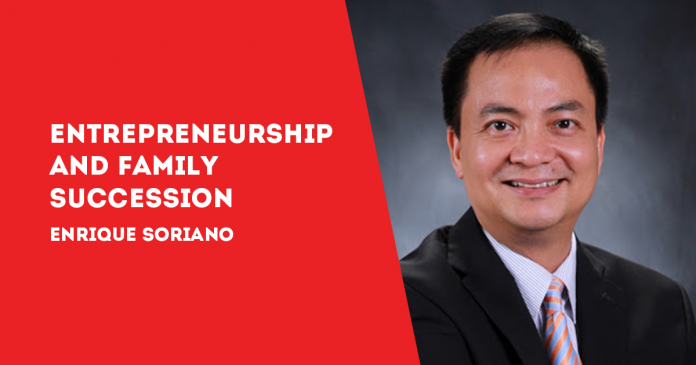
BETRAYAL doesn’t always come in the form of stolen millions or grand corruption schemes. Sometimes, it begins with small acts of entitlement, quiet exceptions to the rules, or subtle abuses of privilege that everyone notices — but no one dares to call out.
Just as the flood control scandal in government exposed how unchecked behavior and petty dishonesties snowball into systemic corruption, family enterprises are equally vulnerable to internal decay when they tolerate minor conflicts of interest (COIs). These may not make headlines, but they erode trust, professionalism, and unity — the invisible foundations of any enduring legacy.
The Many Faces of Everyday Betrayal
In family businesses, Conflict of Interest is not always about stealing or inflating contracts. It’s about putting self-interest above shared purpose. Consider the familiar, everyday scenarios that slowly corrode credibility:
* A family member drawing a full salary but spending mornings at the gym or coffee meetings, showing up late “because of family obligations.”
* A sibling taking on another business on the side — using company resources, contacts, or time to pursue personal gain.
* Parents extending financial favors to one child — a loan, capital to start a venture, or special allowances — not available to others.
* An in-law, with little experience, suddenly appointed to a senior post, leapfrogging loyal employees.
* Longtime friends or favored cousins brought in with inflated pay or minimal accountability, while professional managers are sidelined.
* A family member using the petty cash fund for personal reasons
Each of these may appear harmless or “manageable.” Yet every exception weakens the system. Each time rules bend for one person, others lose trust — and the message becomes clear: fairness is negotiable.
Case 1: The Gym Executive
In a family food business, a second-generation executive often arrived late to the office, citing his morning routine of “recharging” with a workout. His role was visible but unmeasured, and though his productivity was average, his influence as a sibling of the CEO shielded him from criticism.
Soon, senior managers began quietly disengaging. “If the family can come in late, why should we stay late?” became the unspoken sentiment. Over time, performance dropped, turnover rose, and operational discipline disappeared. What began as a simple time conflict evolved into cultural contagion—a family-sanctioned betrayal of professional standards.
Case 2: The Unequal Entrepreneur
In another family enterprise engaged in real estate, the eldest son was given seed capital to start his own business — backed by company resources and parental guarantees. When his venture prospered, he began securing exclusive supply contracts from the family company. His siblings, who received no such opportunity, began to feel shortchanged.
The imbalance fueled bitterness that eventually disrupted board meetings and family gatherings alike. Though the amounts were modest compared to the company’s size, the principle was broken: fairness was replaced by favoritism.
Small COIs, Big Consequences
These examples may seem minor, but petty COIs are the termites of trust. Left unchecked, they hollow out the organization’s integrity. They:
* Create two sets of rules — one for family, another for everyone else.
* Erode the motivation of professional managers who feel loyalty is unrewarded.
* Encourage entitlement among next-generation members.
* Turn unspoken frustrations into open conflict over time.
The tragedy is that these betrayals rarely begin maliciously. They are born out of convenience, emotion, or misplaced compassion. But when fairness is sacrificed for family comfort, the business begins its slow descent from stewardship to dysfunction.
A Final Reflection
In government, corruption often begins when small abuses go unpunished. In family enterprises, betrayal begins when small privileges go unquestioned.
Every family business leader must therefore ask: “Am I betraying my enterprise by tolerating what feels harmless?”
True stewardship demands vigilance over even the smallest conflicts of interest. Governance is not just about rules — it’s about respect for what the family has built together.
Because when fairness fades, legacy fractures.
***
Family Governance Masterclass: Five Slots Left in Iloilo!
Power without accountability destroys wealth and trust. Sweetheart deals, self-dealing, and unchecked in-law influence quietly erode not just profits, but the very relationships that hold a family enterprise together.
Tensions in the office—or even at the family dinner table—are warning signs. The time to act is now.
Join our exclusive in-person Family Governance Masterclass:
* Iloilo City – Saturday, Nov 8
* Cebu City – Saturday, Nov 15
* Manila – Saturday, Nov 29
This high-impact session will equip your family to:
* Prepare the next generation with clarity, discipline, and purpose
* Align family values with business goals
* Build governance that preserves both wealth and harmony
* Prevent conflicts of interest and protect your legacy for generations
Seats are limited to ensure an intimate, results-driven experience.
Reserve your place now: wb@wbadvisoryasia.com (look for Maica)
Don’t wait for trust to break, or for decades of wealth to unravel. Protect what matters most—not just for today, but for generations to come./PN







